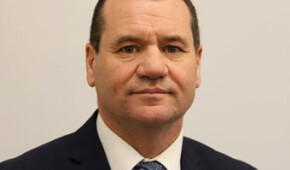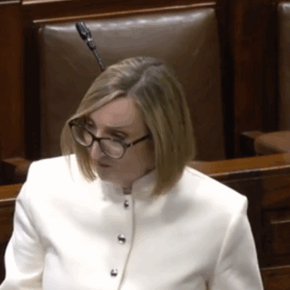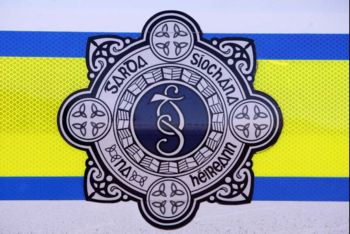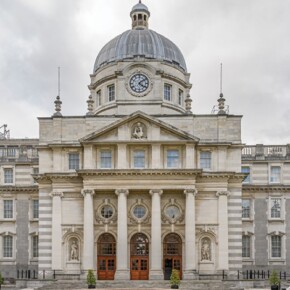Luke Kelly – 30 Years On
Dublin People 25 Jan 2014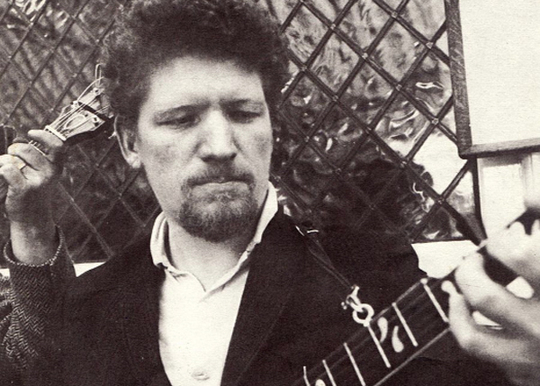
THIS Thursday, January 30, 30 years will have passed since the light went out on one of modern Ireland’s most important cultural icons.
Luke Kelly was just 43 when he died but the impact he left on a new post-war generation of Irish people was far-reaching.
A balladeer, musician, poet, and political activist, Luke’s ability to sing
‘his heart out’ with
‘perfect diction’, in the words of Bono and the late Ronnie Drew, bear testimony to the gift of his irreplaceable voice to stir and move the most hardened of souls with song and sentiment.
Luke’s raspy voice and its depths along with his faithfulness to the song allowed him to visibly engross and lose himself within a tune. One of his most enduring talents was his ability to convince audiences that the songs he sung and the lyrics used were stories from his own life.
Indeed, while Luke often sang of the poor, the oppressed, the worker, the lover or the rebel – the realities of his own life and upbringing enlivened and gave weight to his songs and the emotional way in which he sang them.
His childhood and youth was anything but privileged. The
‘beareded balladeer’ was born on November 17 1940 to a working class family near the Five Lamps / East Wall area of Dublin.
The family lived in poverty, and shared communal toilets and taps with eight other families. By all accounts, Luke was a good student, an avid reader, and gave and received his fair share of knocks and bruises on the playing field for Home Farm FC and his local GAA club.
A house fire in 1953 gutted the family home and forced the Kellys to move to Whitehall. Like many Irish people in the 1950s, Luke left school at a young age, and survived for the next few years of his life doing various menial jobs, before moving to England where his left-wing political ideology began to take shape.
Luke returned home upon seeing an opportunity to find work during the ballad boom in Ireland in the early 1960s
O’Donoghue’s Pub on Merrion Row would be the setting that would bring together the people whose musical skills, energy and distinction would take a lead in putting Irish folk music onto the world stage.
The pub already had a reputation as a session house but it was its role in bringing together the likes of Ronnie Drew,
‘Banjo’ Barney McKenna and Luke Kelly, followed later by Ciaran Bourke and John Sheahan, that guaranteed its place in Irish folk history.
Ronnie was an already established musician in the city, so the group initially referred to themselves as the
‘Ronnie Drew Group’. According to Barney McKenna, the group later opted for the name
‘Dubliners’ after Luke, who happened to be reading James Joyce’s
‘ Dubliners’ at the time, suggested it.
The late 1960s would see the group really hit the international stage with hits such as the controversial
“Seven Drunken Nights
?,
“The Black Velvet Band
?, and a performance of
“Muirsheen Durkin
? on the hugely popular Ed Sullivan Show in the US in 1968.
The Dubliners were later injected with even more energy when composer Phil Coulter joined their management team. It was under his influence that Luke would sing two of his most memorable songs
“Scorn Not His Simplicity
? and
“The Town I Loved So Well
?.
The story behind Luke’s performance of
“Raglan Road
? also helped ensure his place in Irish folklore. So impressed was Patrick Kavanagh, the poem’s normally cantankerous author, with Luke’s singing, that one evening in the Bailey pub he suggested that he should sing it as a song.
Luke’s version of this song, set to the tune of
“The Dawning of the Day
? remains the definitive performance of this celebrated song about Kavanagh’s unrequited love for Hilda Moriarty, considered at one time to be one of the most beautiful women in Dublin society.
Luke and the Dubliners undoubtedly did more to revitalize and re-invigorate Irish folk music and place it on the world stage than any other group.
Luke’s gradual exit from this life began when, after complaining of headaches for some time, he collapsed during a concert at the Cork Opera House on June 30, 1980.
A scan later revealed that he had a brain tumour, and despite a serious operation, the great man continued to tour with the Dubliners. He also gave up drinking for a few years in the hope of speeding a full recovery. Late 1983 would be the last time his fans would see him perform live. While the toll of his declining health could be seen on his face, he sang his last song
“The Night Visiting Song
? with his characteristic depth and commitment.
On January 30, 1984, the great performer succumbed to his illness. After a funeral mass in Church of the Holy Child, Whitehall, he was buried in Glasnevin Cemetery where his headstone bears the simple words
‘ Luke Kelly – Dubliner’.
?¢ Originally from Co Kerry author Dr Senan Fox is an Associate Professor of Modern History and International relations at Kanazawa University in Japan


